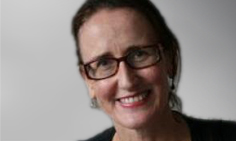WHAT information do parents need when facing agonising decisions about life-support for a desperately ill child, and how should it be presented to them?
Parents’ first port of call will generally be the health professionals caring for their child and, in a shared decision-making environment, their advice is likely to be crucial.
Many parents also seek other sources of information, often online, but there really isn’t much out there.
Recognition of that lack of information led a group of clinicians and medical ethicists from Melbourne’s Royal Children’s Hospital (RCH) and the University of Adelaide to compile a handbook for families facing these decisions.
The process of putting the handbook together, and the consultations they conducted with parents and health professionals, led the team to face some difficult ethical questions of their own, as they document in the Journal of Medical Ethics.
Perhaps the thorniest questions were around how neutral the medical information presented to parents should be.
Neutrality might, at first glance, seem the “morally appropriate” approach, the authors wrote, as it is with other potentially controversial medical decisions such as those related to genetic counselling.
A neutral approach would see parents presented with all the available options, without any recommendation or expression of preference.
But that may not be what parents facing these kinds of decisions want.
A large French qualitative study, which followed up parents 3 years after their child had died in neonatal intensive care, suggested parents wanted hospital staff to express an opinion about the best option for their child.
Parents who had made the decision without that input tended to have “feelings of anxiousness and abandonment” and many struggled later with the decision they had made.
“Once we made our decision, it would have been best for the medical staff to be behind us, to tell us: you are right, this is what should be done, you’ve made the right choice”, one parent told the researchers.
If neutrality from clinicians does not provide the support parents need, what does that mean for written materials, such as the RCH handbook?
Its authors have opted for what they call “balance”, which leads them to focus more on the withdrawal of treatment than its continuation.
The handbook says, for example, withdrawing life support can in some circumstances be “the most caring, loving thing a parent can do for their child”.
The authors argue the focus helps counter “a bias towards the preservation of life that is deeply ingrained both in Western thinking and in our healthcare systems”.
Parents and clinicians are so motivated to do everything they can to save a child’s life that the scales are from the start “heavily skewed in favour of continuing or providing the child with treatment”, they write.
Parents don’t need support when making a decision to start treatment, but they almost certainly will when deciding to end it.
In a different society — one, for example, where the lives of people with disability were not valued — balance might be achieved by slanting information in the other direction, these authors suggest.
A handbook, of course, cannot respond to the circumstances of an individual family — and the authors of this one stress the need for parents to discuss the information with their child’s health care team — but it does seem a useful and compassionate resource for people facing a decision none of us would ever want to make.
Jane McCredie is a Sydney-based science and medicine writer.

 more_vert
more_vert